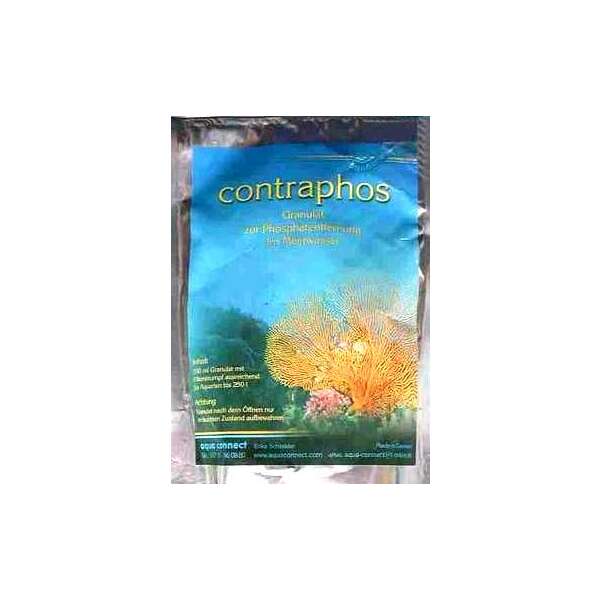aqua connect Contraphos

Granules for phosphate removal
- selective removal of phosphate
- safe for use in fresh and saltwater tanks
- granules irreversibly bind the phosphate
- Manufacturer:aqua connect
Phosphate is an important component of every life, but it is only needed in small quantities. Therefore, a high phosphate content is to be classified as an essential disturbance factor in aquarium water. Natural biotopes not yet impaired by humans generally contain very low phosphate concentrations.
The side effect in freshwater and saltwater aquariums of too high phosphate levels is increased, undesirable algae growth. In seawater aquariums, calcium synthesis is also inhibited in red algae, hard corals and all other calcifying organisms. A phosphate content of over 0.1 mg/l in fresh and sea water leads to the negative effects mentioned above.
Several products for phosphate removal are already on the market. Two product groups must be distinguished.
Product group I: Here the phosphates are bound into complexes. A phosphate test will also not show any more phosphates because they are present in a different form. The organisms present in the aquarium will break down these complex-bound phosphates again, and at the end of this chain the same amount of phosphate is present again.
Product group II: Here, phosphates are bound to the granulate by means of chemical sorption and do not go back into solution. When the granules are removed from the circuit, the bound PO4 is removed.
Contraphos belongs to product group II. It is ensured that when using contraphos no undesirable accompanying substances are released into the water. The use in fresh and sea water is therefore absolutely harmless.
Contraphos is now available in a modified dry Consistency.
| Contraphos should not come into contact with textiles, as stains are difficult to remove. Always keep it closed and out of the reach of children. |









